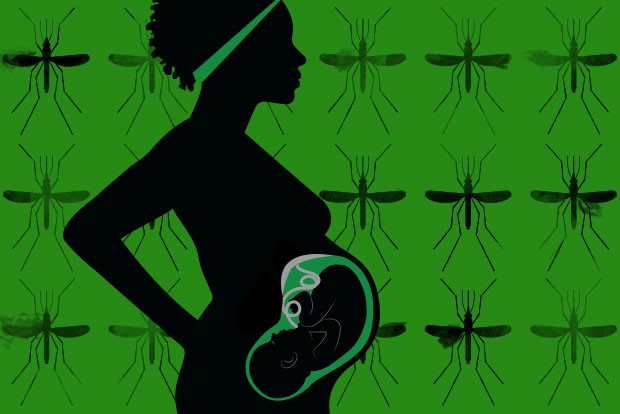Research Overview
Children and adults harbor a small number of cells from their mother and mothers harbor cells from their children. Microchimerism (Mc) refers to having a small number of cells or DNA from a genetically different individual [HLA class II]. Mc is naturally acquired due to bi-directional exchange during pregnancy.
The overall goal of our research group is to elucidate the consequences of Mc for human health, for good and for bad. To this purpose we study several types of autoimmune disease and cancers:
Mc in Autoimmune Disease
Mc in Cancer
Previous Lab Research
This new research field suggests replacing the traditional paradigm that pits a separate self against others by a paradigm that redefines "the self" as including “others” through naturally acquired Mc. The new paradigm leads to important questions such as whether targeted removal could be used when Mc has adverse consequences and whether beneficial Mc effects can be harnessed for restorative purposes.

Mc in Autoimmune Disease
Autoimmune diseases are thought to result from a person’s cells inexplicably attacking its own normal tissues. Although Mc is acquired naturally it is genetically dissimilar, at least in part, from the individual who harbors the Mc. Mc offers a different perspective for the seeming enigma of autoimmunity and our work investigates Mc in autoimmune disease pathogenesis. The diseases we study are scleroderma, rheumatoid arthritis, and multiple sclerosis. We previously studied neonatal lupus, systemic lupus, type 1 diabetes and primary biliary cirrhosis.
HLA molecules are key determinants for distinguishing self from non-self. Further, HLA molecules are of central importance in immune responses and in autoimmune diseases. Donor-recipient HLA matching is key to successful transplantation. By analogy with transplantation, we study the mother-child HLA-relationship in a woman’s predisposition to autoimmune disease.
Scleroderma (systemic sclerosis)
Systemic sclerosis has a predilection for women and a peak incidence in post reproductive years. We studied women with systemic sclerosis and found that the children patients’ had given birth to prior to disease onset were dissimilar for HLA class I but excessively similar for HLA class II genes compared to healthy women (child’s paternally-inherited HLA compared to both of mother’s HLA). Furthermore, we found that women with systemic sclerosis had higher levels of fetal origin Mc than healthy women.
Our current work investigates how these cells interact with the mother’s immune system because our purpose is to enable development of new treatment approaches that selectively target the aberrant autoimmune response.
Rheumatoid arthritis
In rheumatoid arthritis we reported a “vaccine-like” effect of having given birth, affording protection from the disease that abates with increasing time since the childbirth. We think this benefit is likely due to Mc of fetal origin. We found a correlation of pregnancy-induced arthritis improvement with child-mother mismatch for particular genes that are important in immune response (HLA). We further found a direct correlation with fetal Mc in maternal blood.
Multiple Sclerosis
We are currently applying for funding to investigate the role of fetal (and placental) Mc in the pregnancy-induced improvement of multiple sclerosis.

Mc in Cancer
Our work focuses on elucidating the potential anti-cancer benefit of maternal cells.
Acute Leukemia
Currently ongoing studies point to the mother as acting like an “anti-cancer drug” against acute leukemia, notably in the context of cord blood transplantation. When cord blood is used for transplantation leukemia is less likely to relapse, and cord blood contains maternal cells.
Previous Lab Research
Breast Cancer
In previous work on breast cancer, for which risk is often reduced in women who had a birth, we found a deficiency of fetal origin Mc.
VK Gadi, MD, PhD is carrying this work further to decipher mechanisms of protection in order to develop breast cancer preventative strategies.

Malaria
Mc also has implications for infectious disease transmission and prevention. We previously studied Mc in selected infectious diseases, notably HIV and malaria.
Whitney Harrington, MD, PhD is continuing work on Mc in malaria.
Miscarriage & Preeclampsia
In earlier work we studied Mc in pregnancy complications such as miscarriage and preeclampsia.
Hilary Gammill, MD is continuing work that investigates Mc in pregnancy complications.
Neonatal Lupus & Type 1 Diabetes
In prior work we studied neonatal lupus and type 1 diabetes. In addition to circulating blood cells we found that Mc includes specialized body cells in tissue; Mc of maternal origin was present as cardiac muscle cells in neonatal lupus and as insulin-producing cells in the pancreas in type 1 diabetes.
These observations raise questions whether loss of tolerance to maternal cells could result in “autoimmune” disease, or alternatively, whether these cells are sometimes educational, or reparative for diseased tissues.
Anne Stevens, MD, PhD continues to work on Mc in pediatric lupus.

© 2025 Fred Hutchinson Cancer Center, a 501(c)(3) nonprofit organization.